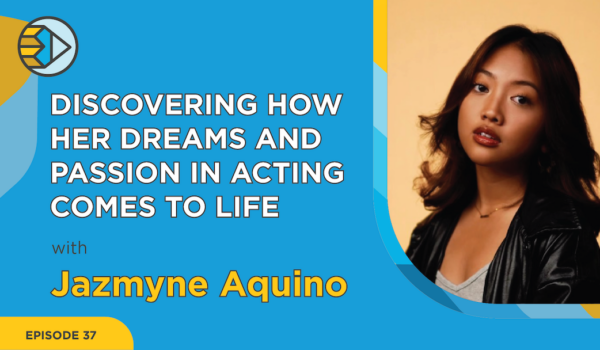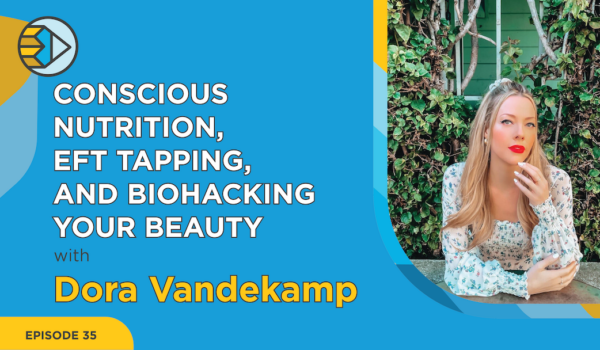
EP 22: Foolproof Formula on How To Write A Reflective Essay
If you’re in university or college the odds are high that you will be asked to write a reflective essay at some point in your academic career. This week our host and Top Writer Cath Anne provides you with a foolproof formula to help you write an effective reflective essay.
Looking for study tips, help with essay writing, or advice on how to be a better student? Welcome to The Homework Help Show, a weekly show where we teach, assist, and offer valuable insights for student life. From study hacks to writing tips, discussions about student mental health to step-by-step guides on academic writing and how to write a resume, we’ve got you covered. Want your questions answered? Write them below or join the conversation on social media using the hashtag #askHHG
TRANSCRIPT:
Cath Anne: [00:00:06] Hello friends! I’m Cath Anne weekly host of “The Homework Help Show” and top writer with Homework Help Global. This week as you can see I am back in my home office and I am so happy to be here. I moved my office into my living room for the winter time. Now it is bright and sunny outside where I am. I hope it’s sunny outside for you guys too.
Cath Anne: [00:00:28] This week we are going to talk about the reflective essay. We’re taking a bit of a break from our series on academic vocabulary words. We’re shifting gears a little bit to talk about reflective essays. Reflective essays are common in disciplines like English, the social sciences, social work, and psychology. When I was in social work school, reflective essays were the bulk of what we did. They are most typical in the humanities. Applications to graduate school also often incorporate a reflective essay. It is likely that at some point in your university career you will be asked to write a reflective essay. So the objective of this session are to describe the purpose of the reflective essay, to identify and explain the reflective cycle, which is a tool that can be employed to write a reflective essay, and describe each part of that reflective cycle.
Cath Anne: [00:01:32] We have a lot of really good valuable information for you today. Please feel free at any time during the video to pause and take notes. So you get the most out of this session. I would encourage you to do that as we go along here. I will be providing you with the reflective essay cycle which is a tool that you can employ in your writing. So let’s jump in.
Cath Anne: [00:01:58] So you have been assigned a reflective essay from one of your college courses, but before you dive into writing let’s talk a little bit about what your professor expects from the reflective essay. A effective reflective essay will take into account three elements. First, you need to speak to your experience both past and present. You also want to speak to your knowledge both past and present and then these two ideas combine to create this sense of self. The idea of self is the most important aspect of a reflective essay because without this sense of self it would not be a reflective essay. So remember as opposed to some academic essays, your professor definitely wants to see a component of you written within the reflective essay. So that’s very important to remember.
Cath Anne: [00:02:59] Second you must understand the purpose of a reflective essay. The reflective essay has a twofold purpose. The first is for you as a student and author to develop a strong concept of a topic based on your experience and knowledge. This is going to help you to tell a professor how you’re engaging with this subject materials and how your past and present experiences and knowledge relate to the subject material. The second purpose is for your professor. The professor is going to read your essay thinking about how you are engaging with the course materials.
Cath Anne: [00:03:33] It will also be important to include some of the skills, theories, and language you have been using in class so that your professor can see that you are incorporating some of the information being provided within the classroom setting.
Cath Anne: [00:03:49] As I mentioned, the reflective cycle is a helpful tool to use in order to meet the purpose of a reflective essay. The reflective cycle includes description, evaluation and analysis, conclusion, and then planning. This might be a good time to stop and paused the video to make a note of those five concepts.
Cath Anne: [00:04:12] During the rest of the session we will review these five steps in order that they will be used when you began your essay. The description part of the reflective cycle asks the student to provide the reader with specifics of what happened. Some questions you can ask to guide you are: What happened? Who was involved? How did you feel? What was your role and what did you think? This is an important part of the essay because the descriptive part of the essay helps the reader or the professor to get in the mindset of the author or student also known as you.
Cath Anne: [00:04:54] Next you’ll want to evaluate the situation. So you describe what happened and then you evaluate whatever experience you are asked to write on. You should be able to judge it. So this is a time when you are being asked to make a judgment call. Was it a good or a bad experience? What was good and what was bad about it? By evaluating your experience you’re showing your reader or your professor that you have critical thinking skills, which is something that professors are always looking for and that you are able to make judgment calls even about your own experience. So not only can you take academic information and make a judgment about it. You’re also able to reflect on your own personal experience and develop some understanding of it which is really important particularly, in disciplines such as the social sciences, psychology, and social work. Next is analysis. How can you make sense of this situation? Again this is asking you to use critical thinking skills. So what did you learn from the situation? How do you feel about it now? Did it change you? How did it change you? When you are writing, you don’t just want to write to write. You want to really engage in critical thinking. This is absolutely what the professor is looking for. So the questions that I mentioned above and I’ll mention them again. What did you learn from this situation? How can you make sense of this situation? How do you feel about it now? Did it change you and how did it change you? Take a minute to write those down.
Cath Anne: [00:06:43] These kinds of questions are going to help you understand the situation and articulate that understanding to the reader or the professor. Next you will want to talk about conclusions. So again here are some questions to guide you. What alternatives did you have or what else could you have done in this situation? There are really two ways to address the conclusion part of the essay. The first is to write about what alternatives you had at the time. If I would have done this at the time or if I would have acted immediately or not acted immediately what would have happened? You want to consider at the time that the situation was happening if you had done something differently, what do you think would have happened?
Cath Anne: [00:07:35] The second way to address the conclusion portion of the essay is to reflect on what you could do now to address the issue. So now you have some hindsight on the situation you have a little more depth clarity information and knowledge. How would you have done it differently? Is there anything that you would have changed in this situation that might have resulted in a different outcome? How would you have changed it? If you wouldn’t change it, why? Why not?
Cath Anne: [00:08:07] These are all great questions to help you address the conclusion portion of the essay. So just to restate that you can either ask yourself if you had done something differently in the moment or when the situation was happening. What would have happened or right now having retrospect on the issue. What would you have done differently? So they’re a bit different and both are completely fine to use in your reflective essay writing process.
Cath Anne: [00:08:41] Finally, you’re going to want to talk about your plan and this is an idea that allows you to prove to your professor that you have engaged critically with the material and that you are able to synthesize a conclusion. So what would you do if that happened again? What new knowledge do you have from the situation? What skills could you apply and what new resources do you have? So basically this is allowing you to think through what could you do if this same situation occurred a second time. In this portion of the essay it is going to be crucial for you to include any theories, words, language, concepts that you have learned within the context of the course. Throughout this reflection the professor wants to see how you are applying your own knowledge and experience and then you are also using the course concepts to understand a situation. They really wanted to see that you can synthesize both your experience and knowledge of the situation as well as these concepts into a nicely tied up little package in the form of an essay.
Cath Anne: [00:09:57] As long as you keep to these five components of a reflective essay in mind, you can never go wrong. These are the basic steps of writing a reflective essay. I’m actually going to just mention them one more time so that you guys are familiar with them again. We have a description, evaluation and analysis, conclusion and then planning. So as long as you follow these five steps you should be good to go in writing your reflective essay.
Cath Anne: [00:10:28] That is it for this brief session on how to write a reflective essay. Next week we will be jumping back into academic vocabulary words to increase your academic vocabulary as well as to include in your essays. Also if you have a assignment specific questions be sure to reach out to your professor. We can also help you out here Homework Help Global. Just send us an e-mail or a quick message. But your professors and anyone on campus will always be willing to help you and if you need any additional help please let us know.
Cath Anne: [00:11:00] Also if this was helpful for you please Like in the comments below. Click the thumbs up and also Subscribe to our channel for more great content like this. That is it for this week and I hope that was a benefit to you. If you want to gain access to any more of our content please visit us on Facebook, Twitter, LinkedIn, Instagram, Google Plus. Of course YouTube. We have lots of blogs on Medium. We’re also on SoundCloud, Anchor, iTunes Podcast and Google Play Music. If you are more of a podcast type of person all you have to do is search Homework Help Global and you will be able to find us.
Cath Anne: [00:11:44] Please feel free to join me live on Instagram every Thursday at 7:00 PM Eastern Standard Time where I will be hosting a livestream question and answer session. Bring your questions and I will do my best to answer everything that you throw at me. So again my name is Cath Anne and thanks for joining me and please LIKE and SUBSCRIBE. Take care.
Share:

